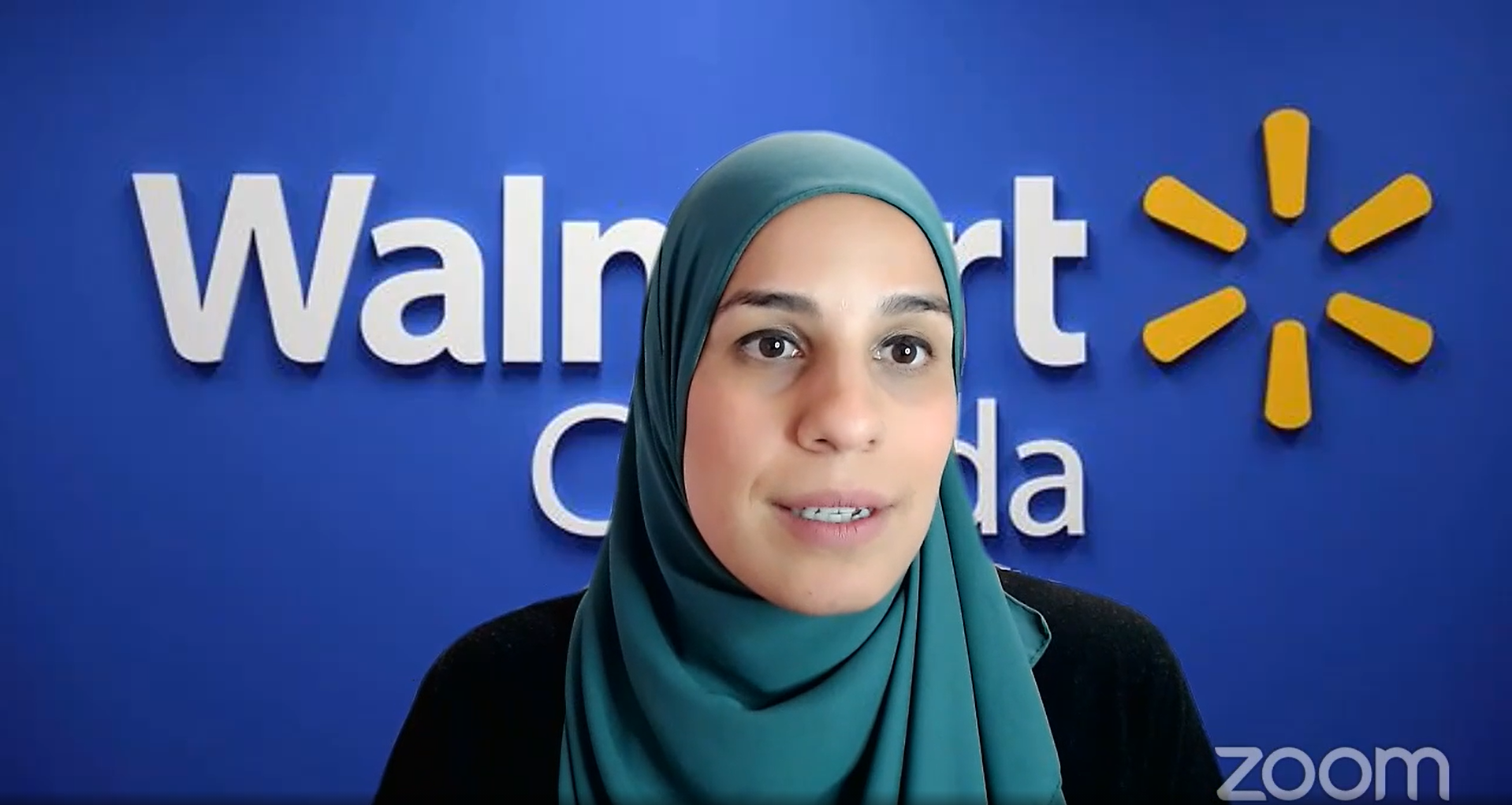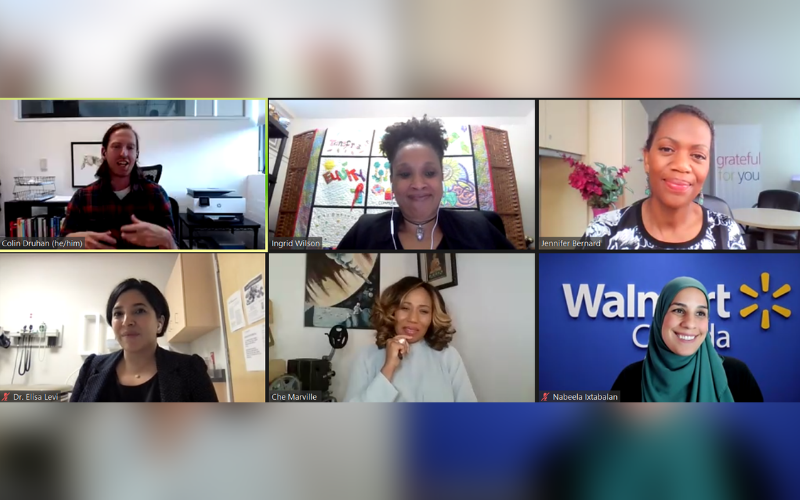The conversation around mental wellness and health equity has been ignited over the pandemic, but more must be done to help people from all backgrounds and cultures, especially those from Black, Indigenous and racialized communities, to access the help and support they need to achieve the basic necessities of life.
“I think if there’s one silver lining to the global pandemic it’s that it put the need for organizations to address well-being front and centre,” said Nabeela Ixtabalan, Walmart Canada’s executive vice-president of People and Corporate Affairs.
“We don’t underestimate the trauma and the generational trauma.”
Panellists Jennifer Bernard, president and CEO of the Women’s College Hospital Foundation, Colin Druhan, executive director of Pride at Work Canada, Dr. Elisa Levi, board member at the Anishnawbe Health Foundation, Ingrid Wilson, senior director of Diversity, Equity and Inclusion at Walmart Canada, and wellness entrepreneur and podcast host Che Marville shared their views on the matter during a 90-minute conversation hosted as part of Walmart Canada’s Brave and Courageous Conversation series for our associates, which was streamed Tuesday on LinkedIn Live.
One of the biggest things that employers can do is talk to your employees.
Walmart associates and people from the around the world tuned in to discuss barriers to wellness and equity faced by the Black and Indigenous communities. Reaching these people and their communities with the help and capacity building they need is a challenge for all companies, including Walmart Canada, and it won’t happen overnight.
“We are trying to actually achieve a healthier, more equitable society,” said Bernard. “And we cannot have a healthy society without giving voice, giving space, giving room and giving equity to those who are from all sides.”
Dr. Levi says it’s so important to include the voices of all patients and populations in the consultation process to avoid missing gaps in health care, which is what Anishnawbe Health Toronto did when building their new facility, which offers both Traditional Indigenous and Western healing approaches.
“One of the first things the organization did was consult community, consult staff,” Dr. Levi said. “I know as an Indigenous person who lived in Toronto how important these services were to me and to be able to access both.”
“This really underlines the whole idea of who you have at the table makes a difference in terms of how you’re having the conversation,” Marville added.

For example, in the Black community, those conversations and specific actions to meet the community where they are to build awareness and understanding was the catalyst for building a successful vaccination program in the community.
“In the Black community, you can see why that shift was important,” Wilson said. “There was a lot of resistance from our community to getting vaccinated.”
This realization stresses the importance of having honest conversations to help fill gaps in mental and health wellness that employers may not know about, Druhan says.
“One of the biggest things that employers can do is talk to your employees,” he said. “We know that queer, trans and two-spirit people face poorer health and mental health outcomes.”
That’s why it’s more important than ever for companies like Walmart Canada to be a place that asks questions and puts well-being at the centre of everything they do.
“You don’t have to have the answers, none of us are experts,” Ixtabalan said. “But you do have to have wise compassion and you have to ask how people are doing and you have to then know how to directly support associates whenever they need help, and that’s really the kind of culture and environment we’re trying to create. And that’s a movement. It takes time to address those things.”




